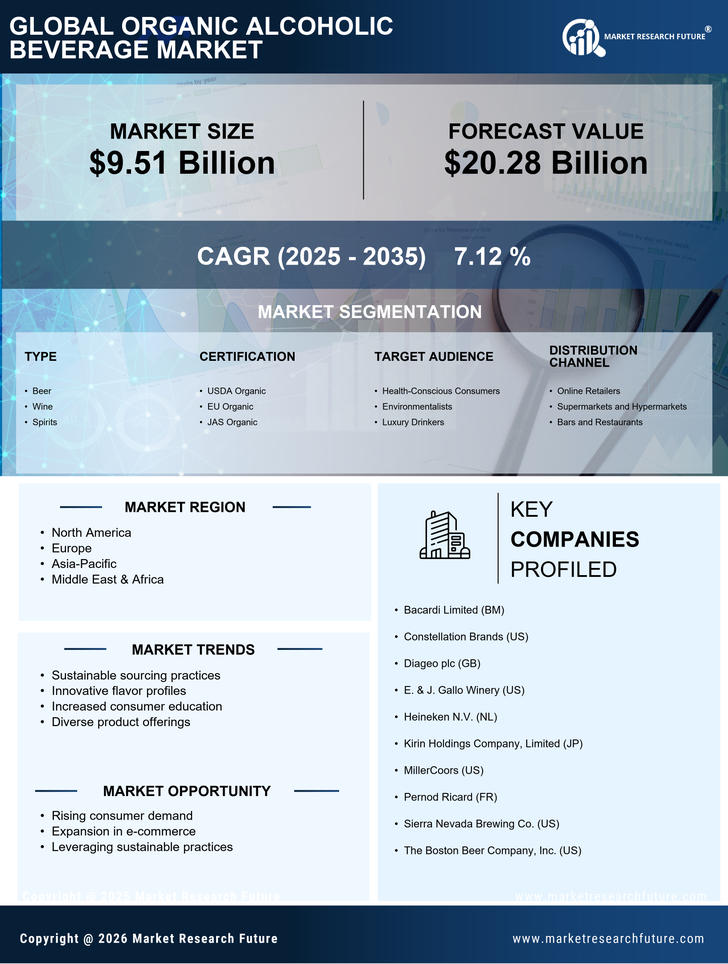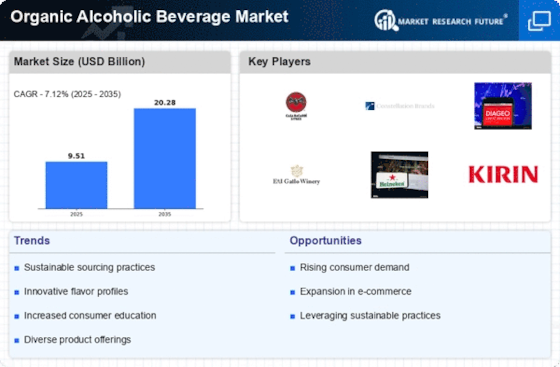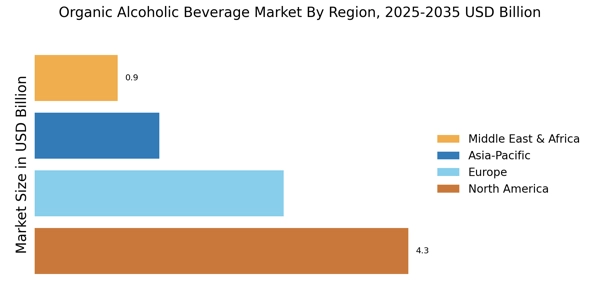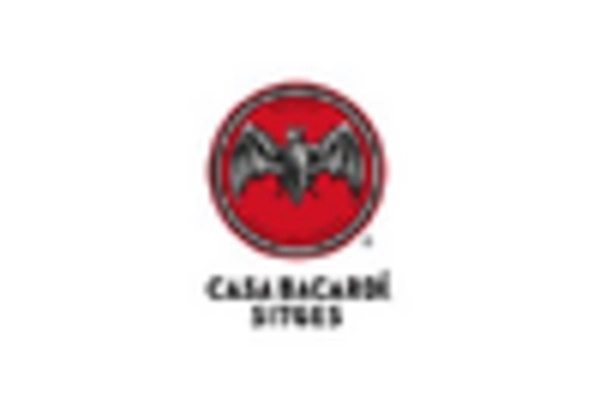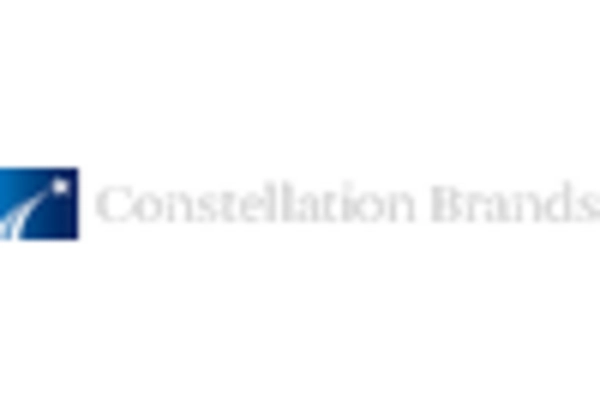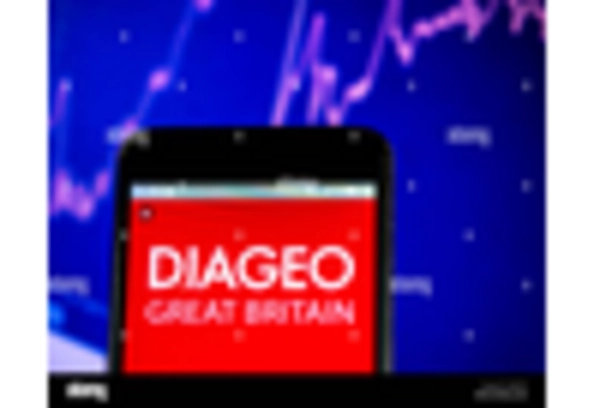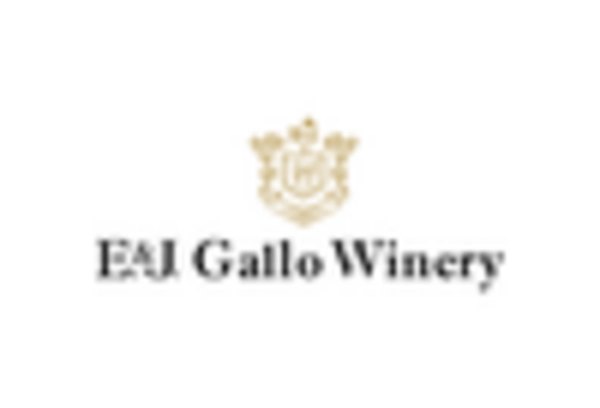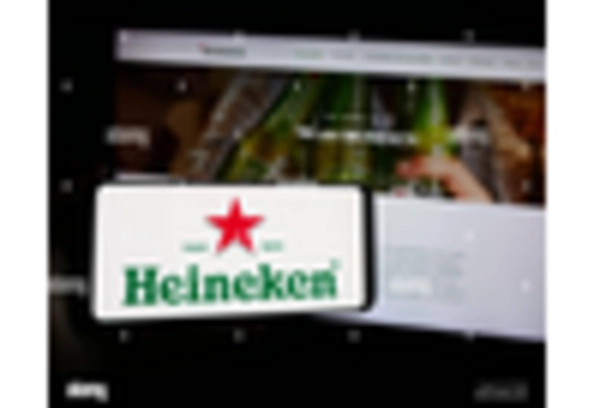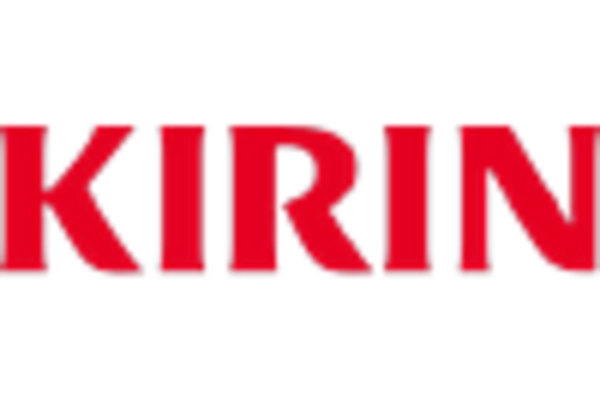E-commerce Growth
The rapid growth of e-commerce is transforming the Organic Alcoholic Beverage Market. With the rise of online shopping platforms, consumers now have easier access to a wider variety of organic alcoholic beverages. This shift is particularly beneficial for smaller brands that may not have the resources to compete in traditional retail spaces. Data suggests that online sales of organic alcoholic beverages have increased by over 30% in the past year, indicating a significant shift in consumer purchasing behavior. E-commerce platforms also allow for targeted marketing strategies, enabling brands to reach specific demographics more effectively. As consumers continue to embrace the convenience of online shopping, the Organic Alcoholic Beverage Market is likely to see sustained growth in this channel, prompting brands to enhance their online presence and optimize their distribution strategies.
Sustainability Practices
Sustainability practices are increasingly becoming a cornerstone of the Organic Alcoholic Beverage Market. Consumers are not only interested in the quality of the products they consume but also in the environmental impact of their choices. Brands that adopt sustainable farming practices, eco-friendly packaging, and responsible sourcing are likely to resonate with environmentally conscious consumers. Recent studies indicate that nearly 70% of consumers are willing to pay a premium for products that are sustainably sourced. This trend is driving companies to invest in sustainable practices, which in turn enhances their brand image and loyalty among consumers. The Organic Alcoholic Beverage Market is thus witnessing a surge in products that highlight their commitment to sustainability, which could potentially lead to increased market share for those brands that effectively communicate their environmental initiatives.
Health-Conscious Consumption
The increasing trend towards health-conscious consumption is a pivotal driver for the Organic Alcoholic Beverage Market. Consumers are becoming more aware of the ingredients in their beverages, leading to a preference for organic options that are perceived as healthier. According to recent data, the organic alcoholic beverage segment has seen a growth rate of approximately 10% annually, reflecting this shift in consumer behavior. This trend is particularly pronounced among millennials and Generation Z, who prioritize wellness and sustainability in their purchasing decisions. As a result, brands that emphasize organic ingredients and transparent sourcing practices are likely to gain a competitive edge in the Organic Alcoholic Beverage Market. Furthermore, the demand for low-calorie and low-sugar options is also influencing product development, pushing manufacturers to innovate and cater to this health-oriented demographic.
Innovative Product Development
Innovative product development is a crucial driver in the Organic Alcoholic Beverage Market. As consumer preferences evolve, there is a growing demand for unique flavors and formulations that cater to diverse tastes. This trend has led to the introduction of a variety of organic wines, spirits, and beers that incorporate unconventional ingredients, such as exotic fruits and herbs. Market data indicates that the introduction of innovative products has contributed to a 15% increase in sales within the organic segment. Additionally, the rise of craft beverages has further fueled this trend, as consumers seek artisanal and small-batch options that offer distinct flavor profiles. Brands that prioritize research and development in their product lines are likely to thrive in the competitive landscape of the Organic Alcoholic Beverage Market, as they can better meet the demands of discerning consumers.
Regulatory Support for Organic Products
Regulatory support for organic products is a significant driver of the Organic Alcoholic Beverage Market. Governments around the world are increasingly implementing policies that promote organic farming and production practices. This support not only enhances consumer confidence in organic labels but also encourages producers to transition to organic methods. Recent data shows that countries with strong regulatory frameworks for organic products have experienced a 20% growth in organic alcoholic beverage sales. Such regulations often include certification processes that ensure product integrity, which is crucial for maintaining consumer trust. As more producers enter the organic market, the Organic Alcoholic Beverage Market is likely to benefit from increased competition and innovation, ultimately leading to a broader range of products available to consumers.
